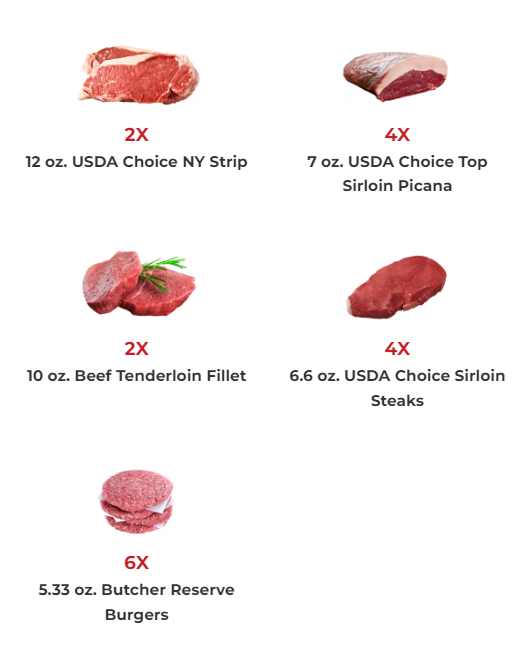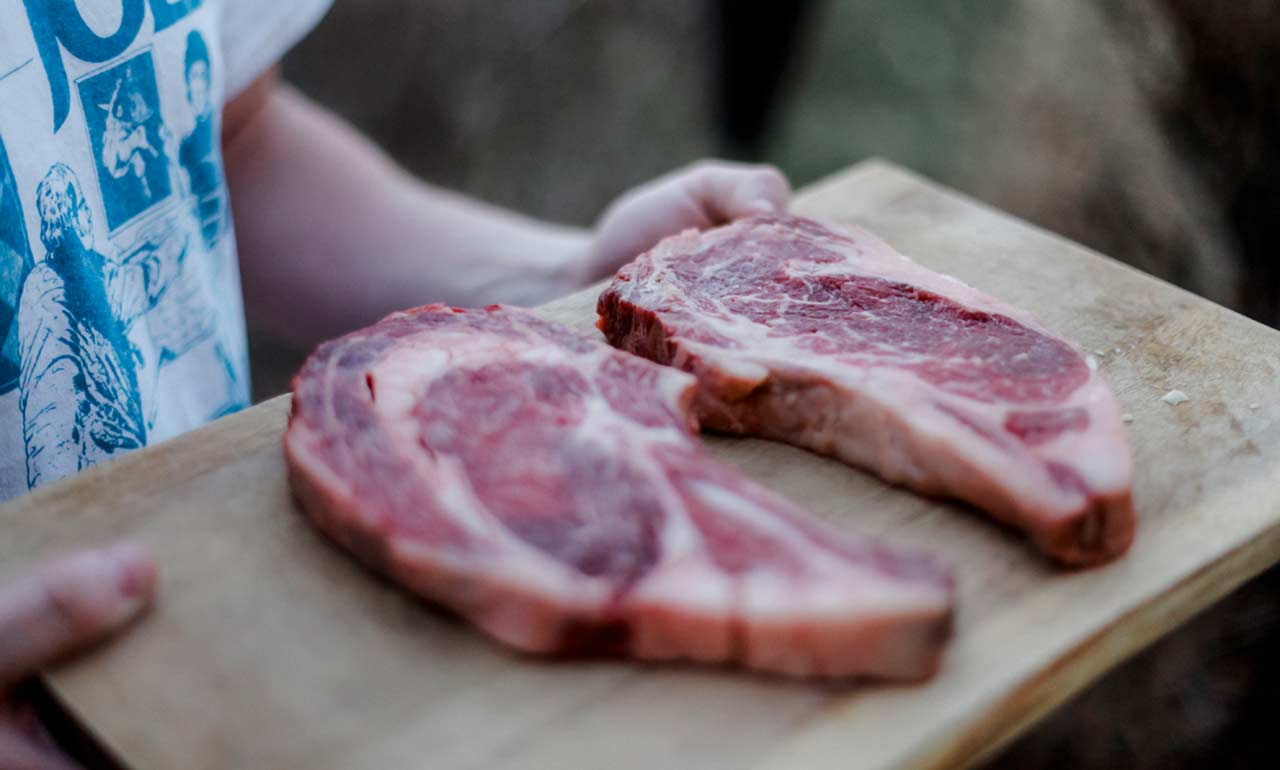A Detailed Look at the customer experience at meat markets edwardsville il.
The Full Guide to Exploring Your Regional Meat Market: Benefits and Offerings
Checking out a local meat market can expose an array of advantages that expand beyond plain shopping. These markets usually provide fresher and much more diverse alternatives contrasted to standard grocery stores. They likewise offer a possibility to involve with knowledgeable staff that can guide clients in their selections. However, the advantages don't quit there. Recognizing the more comprehensive implications of local sourcing could alter the way one comes close to meat intake altogether. What various other understandings wait for those ready to discover?
Recognizing the Worth of Regional Sourcing
Numerous consumers might overlook the benefits, local sourcing in meat markets supplies substantial advantages that expand beyond simple convenience. By buying meat from regional distributors, consumers commonly enjoy fresher products, as these meats are commonly processed and offered faster than those sourced from remote farms. This freshness not just boosts flavor however additionally supports better dietary worth
Moreover, regional sourcing adds to the local economy, helping little farmers and companies grow while decreasing the carbon footprint connected with long-distance transportation. Customers can additionally gain a much deeper understanding of the sourcing techniques, fostering a connection to the local agricultural area. This transparency commonly causes greater pet well-being criteria, as regional producers are most likely to execute honest methods. Inevitably, choosing locally sourced meats equips customers to make informed decisions that benefit both their health and their community, developing an extra lasting food system.
Exploring Special Cuts and Specialty Meats
Local meat markets typically feature one-of-a-kind cuts and specialized meats that may not be found in larger grocery stores. These artisan offerings can include rare varieties, showcasing the diversity of regional livestock. Exploring these options allows consumers to find new tastes and support neighborhood farmers.
Regional Artisan Offerings
What one-of-a-kind flavors and structures wait for at a neighborhood meat market? Local artisan offerings offer an array of distinct cuts and specialized meats that provide to varied cooking preferences. From heritage types to dry-aged beef, clients can discover top notch items not generally discovered in supermarkets. Craftsmen butchers typically concentrate on honest and sustainable sourcing, making certain that meats are increased humanely and with treatment. One-of-a-kind prep work, such as house-made sausages and charcuterie, display the abilities and imagination of regional craftsmens, welcoming expedition and trial and error in home food preparation. In addition, seasonal offerings highlight neighborhood flavors, allowing clients to link with their area and support local business. Welcoming these craftsmen products can raise any kind of meal and enhance the overall dining experience.
Uncommon Meat Varieties
Discovering the offerings at an area meat market discloses an interesting choice of unusual meat ranges that can elevate culinary experiences. Special cuts such as bison ribeye, lamb neck, and goat shoulder offer consumers the chance to trying out flavors and structures that differ from conventional meats (meat markets edwardsville il). Specialty products like venison, swine, and also video game birds offer a taste of the exotic, attracting daring tastes buds. In addition, these markets often source sustainably raised animals, guaranteeing top quality and moral techniques. Educated butchers can advise cooking approaches and pairings, improving the general eating experience. By embracing these rare selections, home chefs can develop unforgettable meals that commemorate varied culinary customs and display the richness of local farming
The Value of Sustainability in Meat Production
Sustainability in meat manufacturing plays a necessary function fit moral farming methods and lowering environmental effect. By prioritizing neighborhood sourcing, consumers can support ranches that prioritize pet welfare and sustainable methods. This focus not just benefits the ecosystem but likewise cultivates a more powerful link between producers and their areas.
Moral Farming Practices
How do moral farming methods add to a more sustainable meat production system? These methods focus on pet welfare, guaranteeing that livestock are increased in humane problems. By providing animals with appropriate space, accessibility to field, and a natural diet, ethical farming enhances their health and wellness, causing higher-quality meat items. Additionally, moral ranches frequently execute rotational grazing and other lasting methods that advertise soil health and wellness and biodiversity. This strategy reduces reliance on artificial inputs and aids maintain regional ecological communities. Additionally, ethical farming fosters a connection between manufacturers and customers, encouraging openness and liability in the food supply chain. Ultimately, these techniques not just profit animals however additionally contribute to an extra lasting and resilient farming system.
Environmental Impact Decrease
As the need for meat continues to increase, the significance of minimizing ecological effects in meat production comes to be increasingly obvious. Traditional meat production is linked to significant greenhouse gas discharges, logging, and water depletion. Lasting techniques, such as rotational grazing and integrated crop-livestock systems, can reduce these impacts by advertising soil health and minimizing reliance on chemical inputs. In addition, buying neighborhood meat markets encourages manufacturers to take on eco-friendly methods, as customers progressively focus on sustainability. By selecting meat resources that focus on animal welfare and environmental stewardship, people can contribute to an extra lasting food system. Eventually, recognizing the ecological implications of meat production empowers customers to make educated options that support both their wellness and the planet's health.
Neighborhood Sourcing Advantages
While many beef delivered to home customers might not realize it, regional sourcing of meat considerably improves sustainability in food manufacturing. By sustaining local farms, customers reduce the carbon footprint related to long-distance transport. In addition, neighborhood meat producers usually employ much more ecologically pleasant and humane techniques contrasted to large-scale industrial procedures. This technique cultivates biodiversity and advertises pet welfare. Regional sourcing reinforces the local economic climate by keeping funds within the neighborhood and encouraging lasting farming practices. It also makes it possible for customers to establish a deeper link with their food sources, cultivating transparency in manufacturing approaches. Inevitably, focusing on neighborhood meat not just benefits individual wellness but likewise adds favorably to environmental sustainability, making it a responsible choice for diligent customers.

Structure Relationships With Your Butcher
Developing a rapport with a regional butcher can greatly improve the meat-buying experience. Establishing a connection promotes trust fund, enabling customers to look for customized recommendations tailored to their cooking needs. An experienced butcher can offer understandings into the finest cuts for details meals, prep work methods, and cooking times, changing a simple buying journey into an instructional experience.
Furthermore, normal interactions can bring about exclusive deals or accessibility to specialty products not available to the public. A butcher who recognizes their clients is most likely to prioritize quality and freshness, making sure contentment with every purchase. Furthermore, this partnership can influence a sense of area, as clients feel more attached to the neighborhood food network. Involving with a butcher not only enhances online grass fed beef the consumer's understanding of meat products however additionally supports regional companies, creating a mutually beneficial connection that prospers on trust fund and quality service.
Tips for Choosing the Finest Meats
When selecting the ideal meats, customers ought to concentrate on numerous vital factors that assure both top quality and taste. Quality is important; meat ought to have a lively shade and a tidy, pleasant scent. Consumers must likewise check out the marbling, as intramuscular fat boosts inflammation and taste. Furthermore, recognizing the cut is essential; various cuts serve numerous food preparation methods and dishes, so knowing the planned use can lead choices effectively.
Another crucial aspect is sourcing; buying from trustworthy providers or neighborhood butchers commonly implies greater high quality standards. Customers should ask about the meat's origin and any type of techniques associated with animal welfare or feeding. Ultimately, checking for correct packaging and storage space at the market can show just how well the meat has been looked after. By taking into consideration these aspects, customers can make enlightened decisions that result in a more gratifying culinary experience.
Sustaining Regional Economic Situations and Neighborhoods
Supporting local economies and neighborhoods is an often-overlooked benefit of buying at neighborhood meat markets. When consumers choose to buy from these establishments, they contribute directly to the source of income of regional farmers, breeders, and artisans. This assistance cultivates a sustainable agricultural system and reinforces regional economic climates, as money invested locally has a tendency to distribute within the neighborhood, creating tasks and improving regional facilities.
Furthermore, regional meat markets usually source their products from close-by ranches, reducing transportation costs and carbon impacts. This not just promotes environmental sustainability yet likewise permits consumers to delight in fresher, higher-quality meats.
On top of that, these markets typically participate in area campaigns, such as funding neighborhood events or supporting food financial institutions. By prioritizing regional meat markets, customers play a crucial duty in supporting their communities and guaranteeing the survival of local business, which ultimately enriches go to my site the social material of the location.
Often Asked Questions

What Are the Typical Operating Hours of Neighborhood Meat Markets?
Typical operating hours for local meat markets commonly differ, however many open between 7 AM and 9 AM, closing between 5 PM and 7 PM. Some might additionally provide extensive hours on weekends for convenience.
Do Neighborhood Meat Markets Offer Distribution Providers?
Many local meat markets do use shipment solutions, although availability varies by location. Customers should make inquiries directly with their regional market to confirm whether this solution is given and any kind of affiliated charges or conditions.
Exist Vegetarian Options Available at Meat Markets?
Many regional meat markets do supply vegan choices, such as plant-based sausages, marinated veggies, and specialty cheeses. These choices cater to varied dietary preferences, interesting both meat lovers and those looking for meat alternatives.
How Can I Find a Neighborhood Meat Market Near Me?


To discover a neighborhood meat market, one can search online with maps or directories, ask neighbors for recommendations, or visit regional farmers' markets that frequently include vendors concentrating on meat products.
What Settlement Techniques Do Regional Meat Markets Accept?
Local meat markets typically approve various repayment methods, including debit, credit history, and cash money cards. Some might also supply mobile payment options or commitment programs, boosting comfort and motivating repeat company among their clients.
By buying meat from neighborhood providers, consumers commonly take pleasure in fresher products, as these meats are generally refined and offered a lot more rapidly than those sourced from far-off farms. Neighborhood meat markets commonly include distinct cuts and specialized meats that might not be located in larger grocery store stores. Exploring the offerings at a neighborhood meat market exposes a fascinating choice of unusual meat varieties that can boost cooking experiences - meat market delivery. As the need for meat continues to rise, the relevance of decreasing ecological effects in meat production comes to be significantly evident. Sustaining regional economic climates and areas is an often-overlooked advantage of buying at local meat markets